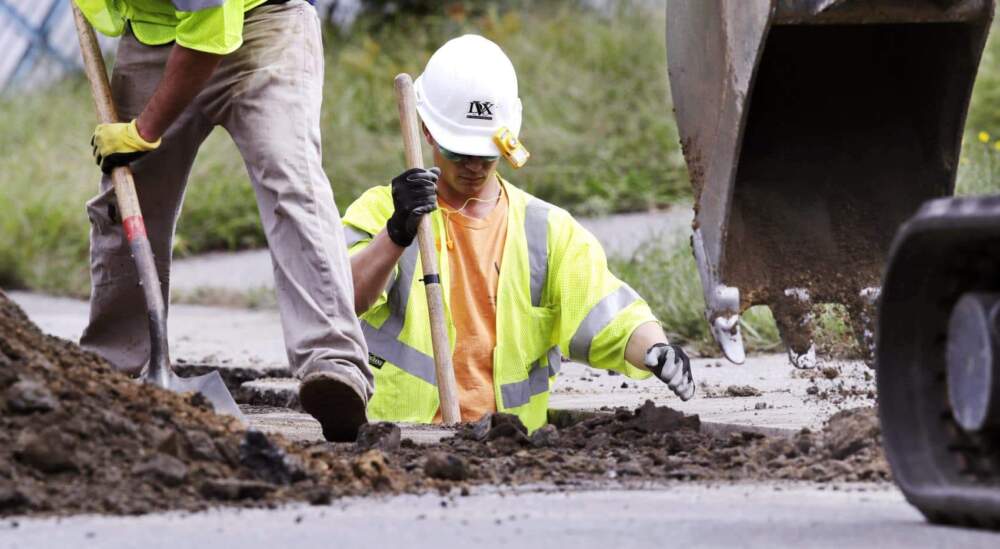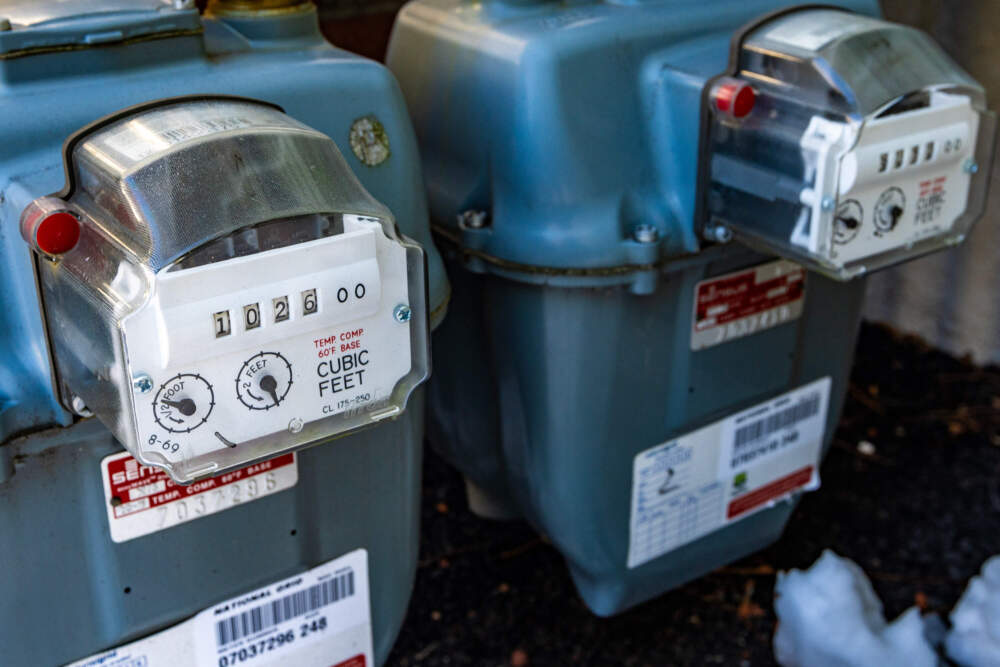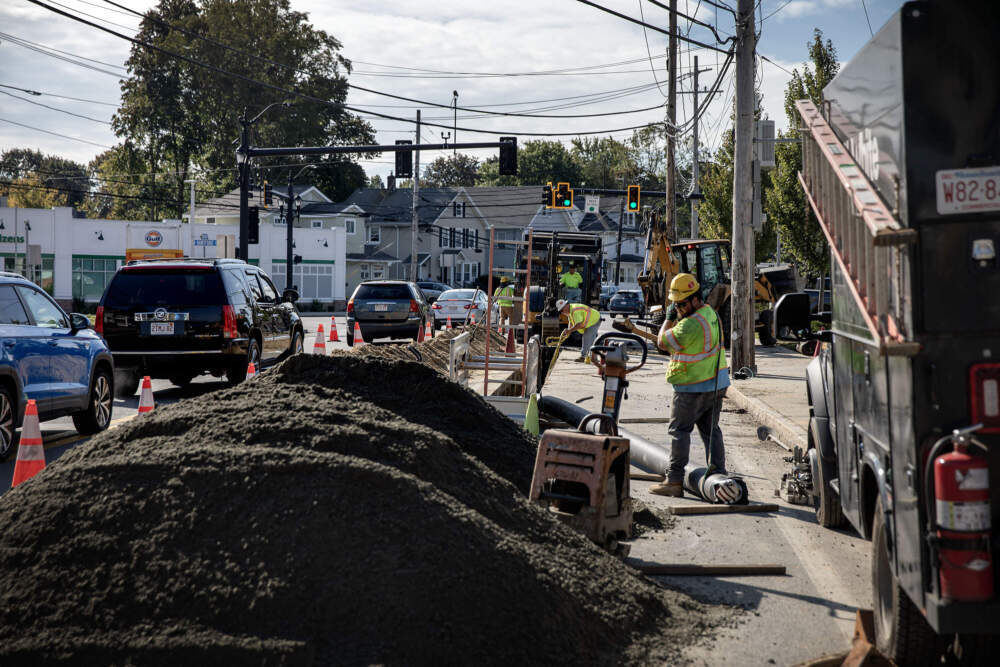Advertisement
Mass. orders utilities to spend less ratepayer money on natural gas pipelines

Massachusetts officials are overhauling a natural gas program they blame for driving up customers' bills and encouraging utilities to make unnecessarily costly repairs.
The program, known as the Gas System Enhancement Plan, or GSEP, gives gas companies a financial incentive to replace leaky natural gas pipelines. But state officials claim it "lack[s] any meaningful incentive for cost containment," and has resulted in overcharging ratepayers for work that could have been completed at a lower cost.
In an order released this week, the state Department of Public Utilities outlined several changes to the program that it says will save ratepayers money and help the state slash planet-warming emissions, without jeopardizing safety.
“For far too long the gas companies have continued to spend on unnecessary GSEP projects, costing the state’s ratepayers billions,” DPU Commission Chair James Van Nostrand said in a statement. “These changes will ensure a well-maintained gas system by requiring gas utilities to address the issue of leak-prone pipe in a more affordable manner.”
National Grid and Eversource, the two biggest gas utilities in the state, said they were reviewing the order.
“Operating and maintaining a safe and reliable natural gas system for our customers is the top priority,” Eversource spokesperson Kaitlyn Woods wrote in an email. “As we review the recent decision from the Department of Public Utilities, our work will continue on behalf of our customers to safely, efficiently, and cost-effectively address aging, leak-prone pipe across the state.”
Massachusetts has about 21,000 miles of underground natural gas pipelines, many of which are old and prone to leaks. While gas utilities are required by law to maintain a safe system and fix cracked or corroded pipes, a growing body of research in the 2010s showed leaks were far more prevalent than previously realized.
Natural gas is primarily methane, which is a potent climate pollutant and extremely flammable. In parts of the state, approximately 2.7% of all gas traveling through pipelines leaks into peoples' homes and the atmosphere, a report from the Conservation Law Foundation found.
Advertisement
In 2014, lawmakers created GSEP to boost efforts replace and repair pipelines. The program provided an attractive financing mechanism for utilities because it allowed them to recover costs for this work faster. The utilities took advantage of this and the program took off with gusto.
Since its inception, spending under GSEP has ballooned about 21% annually, according to the state. One reason for increasing expense is exploding material and labor costs, which have more than doubled the repair cost per mile of pipeline since 2015.
Another complicating factor: Thousands of new leaks are discovered every year, making the repair process like a big game of Whack-a-Mole.
Gas utilities have charged ratepayers $6.2 billion for GSEP over the last decade, and the program accounts for one of the biggest surcharges on customer's monthly bills. The Massachusetts Attorney General's Office estimates that 8-11% of what customers pay monthly now goes toward funding the program.
“Gas bills skyrocketed this winter, and ratepayers need relief," Attorney General Andrea Campbell said in a statement.

Several other states with similar mechanisms for gas pipeline repairs, including Illinois and Maryland, have also sought to rein in their programs in recent years.
Massachusetts state Sen. Mike Barrett, who co-chairs the legislative committee that oversees utilities, said one of the biggest problems is that companies have opted to replace leaking pipelines when less-costly repairs would have sufficed. Gas utilities make a profit when they build or repair infrastructure, so the more money they spend on pipelines, the more money they make.
What’s more, a 2022 state law requires the phase-out of natural gas by mid-century as part of an effort to reduce planet-warming emissions. Barrett argues it makes little economic sense to spend billions on new gas infrastructure that the state hopes to decommission in the next two decades.
By reining in the program, Barrett said the Department of Public Utilities struck a good balance between pipeline safety, addressing climate pollution and keeping energy bills affordable.
“You don't pay the gas utilities extra to keep them from blowing us up,” he said.
The changes to the GSEP program include reducing the amount of money companies can spend annually and eliminating some interest fees they typically pass onto ratepayers. The order also instituted a more rigorous oversight process designed to prioritize the most severe leaks. Another change creates financial incentives for “non-pipeline alternatives” — such as retiring a stretch of the gas system and installing electric heat pumps in peoples’ homes instead.

Environmental advocates called the state's move an excellent first step that will result in savings for natural gas customers.
“This is good for today’s consumers and even better for consumers over the long run," said Larry Chretien, executive director of the Green Energy Consumers Alliance, a nonprofit advocacy group. "We need to prune gas infrastructure, but it needs to be done carefully. The order takes the right approach.”
Because of the changes, state officials project utility customers will see up to a 17% decrease in the GSEP surcharge on their monthly bills beginning this year.
Economist Dorie Seavey said without the overhaul, ratepayers could be on the hook for tens of billions of dollars through the end of the century. By then, state officials hope most people have heat pumps, which means a small pool of ratepayers would be left paying for a giant stranded asset.
Gas pipelines “are massive investment decisions that have long-term consequences,” Seavey, who studies GSEP for the environmental consulting firm Groundwork Data, said. “Consumer ratepayers should care [about the program] because they're on the hook for many, many decades to pay back these costs.”
Curious if there’s a leaky pipeline near you? The Boston-based nonprofit HEET maintains a map of utility-reported gas leaks and a map of GSEP-related work. Both are updated annually.
